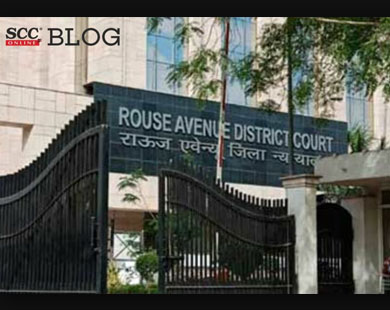Rouse Avenue District Court, New Delhi: In a bail application filed by ex-Deputy Chief Minister and Excise Minister of Government of National Capital Territory of Delhi (‘GNCTD’), Manish Sisodia under Sections 437, 439 of Criminal Procedure Code, 1973 (‘CrPC’) in Delhi Excise Policy case, the Rouse Avenue District Court Special Judge, M.K. Nagpal denied the bail application with reference to the serious nature of allegations and the apprehension of his release adversely affecting the investigation.
The instant case was registered by CBI for offences under Sections 120B read with 477A of the Penal Code, 1860, (‘IPC’) Section 7 of Prevention of Corruption Act, 1988 (‘PC Act’) and other offences related to the irregularities in framing and implementing the Delhi Excise Policy 2021-22. Manish Sisodia was arrested on 26-2-2023 after filing of charge-sheet, and the investigation is still ongoing. The instant matter relates to allegations of manipulation of formulation and implementation of excise policy of GNCTD for facilitating monopolization and cartelization of liquor trade in the National Capital, done against advance kickbacks of around Rs. 90-100 crores for which certain provisions were inserted in the existing excise policy to favour the lobby and other members of cartel in liquor business in furtherance of a criminal conspiracy between several accused persons.
While dealing with the instant matter, the Court mentioned the other cases registered by Directorate of Enforcement (‘ED’) in money laundering case against Manish Sisodia and others in which he is under judicial custody and investigation is ongoing.
The Court pointed out that although none of the offences carry punishment of imprisonment beyond 7 years, the term of punishment is not the only criteria for deciding an application for bail. The Court referred to the cases relied upon by the Counsel of Manish Sisodia, particularly P. Chidambaram v. Directorate of Enforcement, (2020) 13 SCC 791 regarding discretion of the Court for granting bail after considering facts and circumstances of the particular case and expressing the prima facie reasons for granting or refusing a bail application, and the case of Prahlad Singh Bhati v. NCT, Delhi, (2001) 4 SCC 280 laying the various factors to be considered while granting bail.
The Court went through the facts and circumstances in the instant matter including the recommendations of the Expert Committee for Delhi excise policy, transfer of Excise Commissioner and appointment of a new Excise Commissioner, conversation between Manish Sisodia and the new Excise Commissioner for restructuring the excise policy, preparation of Cabinet Note, evidence collected etc. The Court agreed to the sufficiency of oral and documentary evidence to show Manish Sisodia being instrumental in closure of certain manufacturing units in liquor business not acceding to demands of bribe against the profit margin. It further mentioned the allegations of tampering with evidence.
The Court concluded that Manish Sisodia played the most important role in the said criminal conspiracy, deeply involved in the formulation and implementation of policy ensuring the alleged objectives. The Court held Manish Sisodia to be the prima facie architect of the said criminal conspiracy, rejected his bail application referring to the pending investigation and opined that allegations against Manish Sisodia in the instant liquor case are serious in nature, and that his release at this stage may adversely affect the investigation seriously hampering the progress. The Court further said that “Mere filing of a chargesheet against seven other co accused does not matter much in a case like this where deep-rooted conspiracy for commission of some economic offences effecting the people at large is alleged to have been committed.” The Court agreed with the observations regarding economic offences in Y.S. Jagan Mohan Reddy v. CBI, (2013) 7 SCC 439 and Nimmagadda Prasad v. CBI, (2013) 7 SCC 466 and commented that such offences of grave nature effecting the country’s economy need to be viewed seriously.
The Court also said that Manish Sisodia does not satisfy the triple test laid in P. Chidambaram v. CBI, (2020) 13 SCC 337 while pointing towards the destruction and non-production of crucial digital evidence. It further added that the CBI evidence prima facie shows the commission of substantive offences of corruption apart from active participation in the criminal conspiracy and that the material on record justifies CBI arrest of Manish Sisodia in liquor case.
[Manish Sisodia v. Central Bureau of Investigation, 2023 SCC OnLine Dis Crt (Del) 3, order dated 31-3-2023]








a likely study app